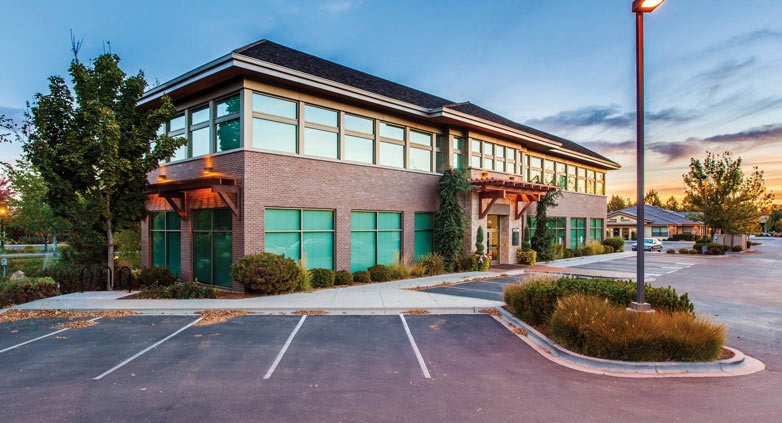How Much Does It Cost to Build a New Parking Lot?
Contemplating the costs of building a new parking lot? This is a key decision for your business, promising convenient parking for customers and service vehicles. Understanding the financial commitment is essential.
The cost to build a new parking lot typically falls between $10,000 to $150,000. This range depends on various factors, including the size of the lot, your choice of materials, and the overall complexity of the project. Opting for a small, basic asphalt lot? Expect costs on the lower end. Planning a large, concrete space with unique features? Your budget should lean towards the higher estimate.
To dive deeper into what shapes the cost of your parking lot project, our next sections will explore the key influencing factors. We’ll compare cost-effective material options against those that offer more durability and style. Stay tuned for a thorough breakdown and expert tips!
Important Costs To Consider
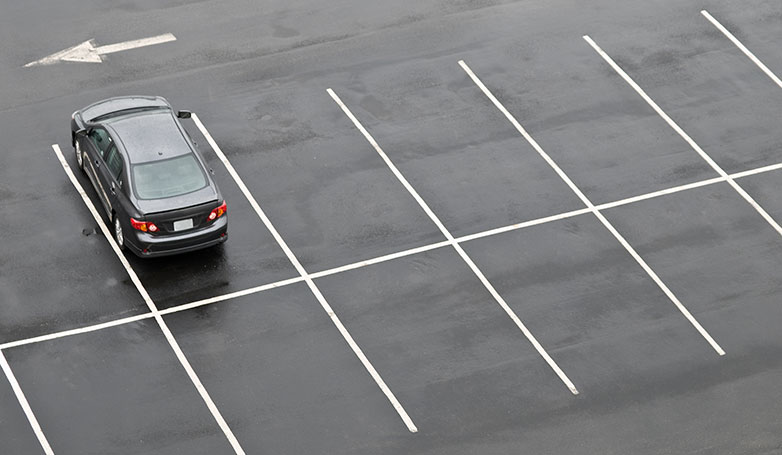
Before you can begin ordering materials for your new parking lot, you need to create a budget. If your parking lot project is on the lower side of the price spectrum, then you might spend $10,000 on a new lot. By using inexpensive materials or building a smaller parking lot, a budget of $10k is possible.
The average price for a new parking lot, according to recent numbers from HomeAdvisor, is $75,000. We’re assuming this price accommodates an average parking lot size, which is between 7.9 and 9 feet.
For a bigger parking lot or one that uses pricier materials (more on this later), you can expect to spend the most money, at least six figures. You’d need a budget of around $150,000, possibly more.
What if you’re interested in sealcoating your new parking lot? We discussed this in another recent post, but a sealcoat is a product that maintains the quality of the parking lot, sometimes for up to several years. The larger your parking lot, the more sealcoat you need, so you can expect a higher sealcoat price per square foot of lot.
Besides that, not all sealcoat is created equal, with some brands or types more expensive than others. Per square foot then, you might pay $0.05 to $0.20 for sealcoating.
Factors That Affect the Cost of Building a Parking Lot
Now that you have a good idea of what you might spend to build a new parking lot, let’s examine the factors that can determine why your project is more expensive or less so.
Location
The geographical location of your parking lot project significantly impacts the cost. Constructing a parking lot in urban areas often incurs higher expenses due to elevated labor rates and material costs. In contrast, building in rural areas might offer cost savings. Moreover, the accessibility of the construction site plays a crucial role – sites that are difficult to access can escalate transportation and labor costs.
Lot Size
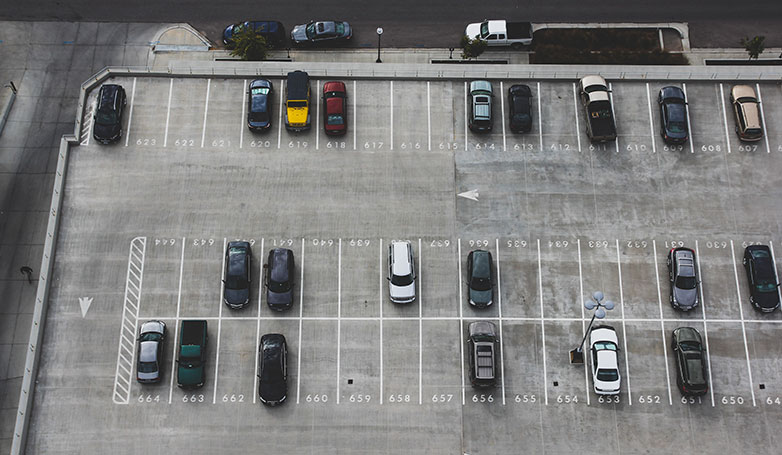
This is a big one and a factor we’ve already touched on. For the most part, you can anticipate that a larger parking lot will cost more than a mid-sized lot or a small one. Exceptions may exist, such as choosing a premium parking lot material for a mid-sized lot. In such a case, you might be looking at prices on par with the cost of building a large lot with less expensive materials.
Material
Most parking lots are concrete or asphalt, but some companies prefer gravel or tar and chip lots. Later in this guide, we’ll contrast the prices of concrete versus asphalt parking lots by square foot. We’ll also introduce you to those other parking lot materials and their costs.
You’ll quickly see how some lot materials are more budget-friendly than others, which will likely influence your choice.
Anticipated Traffic
What kind of vehicles will use your parking lot the most? Will it be everyday cars, trucks, and SUVs? Perhaps you’ll have garbage trucks, freight trucks, and other commercial vehicles coming in and out of the lot daily.
If it’s the latter, then you need a parking lot material that’s strong enough to handle this heavy traffic without cracking, buckling, or leaving potholes in the vehicle’s wake. Since you must reinforce your lot, the scope of your project now increases, as must your budget for the parking lot.
Drainage
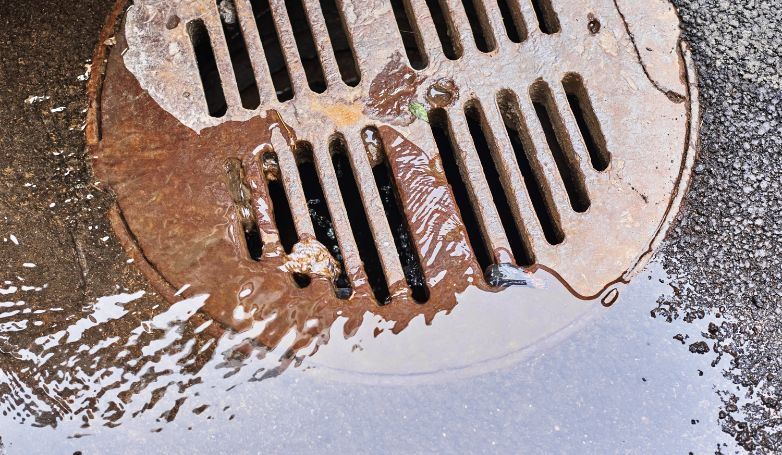
You don’t want to wait until water damage has accrued before you add drainage to your parking lot. Water will pool anywhere the lot isn’t even.
You might find that the people who use your parking lot will steer clear of these water-damaged spots because they don’t want to ruin their vehicles.
The lot material can begin deteriorating from all the water. One such form of damage that can occur is called rutting. This is where the wheels of cars and trucks leave depressions shaped like tires in areas of your lot that get a lot of traffic. All the pressure from the rushing water can crack the top layer of your parking lot too. The lot material can also separate, which is known as bleeding.
Drainage vents give the water a place to go rather than linger in your parking lot.
Adding these vents is more costly than going without. Not every parking lot needs a drainage option, but for those that do, the vents save so much money in the future.
Lighting and Security Features
Incorporating lighting and security features such as CCTV cameras or emergency call stations enhances the safety of the parking lot but also increases the cost. The type and extent of these features should align with the intended use and location of the parking lot.
Land Preparation and Site Conditions
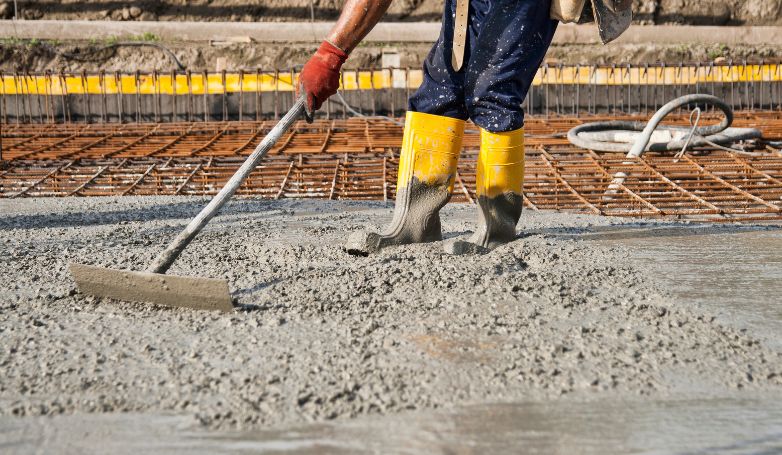
The existing condition of the construction site plays a significant role in determining costs. Clearing land, removing trees, leveling ground, or dealing with rocky terrain can all add to the project’s complexity and expense.
Accessibility and Proximity to Utilities
The proximity of the parking lot to existing utilities like water, electricity, and sewage impacts costs. If utilities need to be extended to the site, this can significantly increase expenses.
Permitting and Regulatory Compliance
Securing the necessary permits and ensuring compliance with local, state, and federal regulations is a must. This process can be time-consuming and costly, especially if special zoning or environmental permissions are required.
Labor Requirements
By reinforcing your concrete and adding drainage options, your parking lot builders have to expend a lot more time and energy. The extra labor drives up the overall price of your project.
Landscaping and Aesthetic Features
Finally, adding landscaping and aesthetic elements like trees, shrubs, walkways, or art installations can enhance the appeal of your parking lot but also adds to the budget. The scope of these features should be balanced with the overall cost goals of the project.
Concrete vs. Asphalt Parking Lots: Which Is More Expensive?
| Aspect | Concrete Parking Lot Cost (per sq. ft.) | Asphalt Parking Lot Cost (per sq. ft.) |
|---|---|---|
| Material Cost | $4.00 – $7.00 | $2.50 – $4.50 |
As mentioned, you’ll more than likely choose between concrete or asphalt for your parking lot. Asphalt is the traditional gray or black building material you see on streets, freeways, and highways. Repairing asphalt is easy, but it requires frequent maintenance, including resealing. In very hot temperatures, asphalt can become unstable.
Concrete tends to outlast asphalt, but it costs more. This material also demands fewer repairs, which is good, since concrete is harder to patch up. In very cold conditions, concrete might crack or buckle, and it stains quite easily.
According to 2020 numbers from HomeAdvisor, pre-poured concrete slabs are $1.40 to $4 a square foot. If you’d prefer pouring the concrete yourself, that costs $3 to $4 for each square foot. Overall, you’re looking at a concrete parking lot price of $4 to $7 a square foot when you add in labor as well.
Asphalt might be $2.50 to $4.50 a square foot with labor added in.
Other Parking Lot Surface Options and Their Prices
| Aspect | Gravel Parking Lot Cost (per sq. ft.) | Tar and Chip Parking Lot Cost (per sq. ft.) | Pavers Parking Lot Cost (per sq. ft.) | Brick Parking Lot Cost (per sq. ft.) |
|---|---|---|---|---|
| Material Cost | $1.25 – $2.00 | $1.00 – $3.00 | $10.00 – $30.00 | $15.00 – $40.00 |
You don’t necessarily have to choose between asphalt and concrete. Here are a few other materials for your parking lot that you might consider instead.
Tar and Chip
The paving style known as tar and chip resembles asphalt as well. To construct a tar and chip parking lot, you use gravel and other loose stone as well as bitumen asphalt that’s heated until it becomes a liquid. The resultant parking lot is quite visually appealing. Repairing or maintaining one of these lots isn’t terribly difficult, and again, there’s the low price.
Just how low? Tar and chip parking lots might cost $1 to $3 a square foot, which isn’t bad. Like gravel driveways, tar and chip driveways can degrade from weather extremes and everyday wear and tear.
Gravel
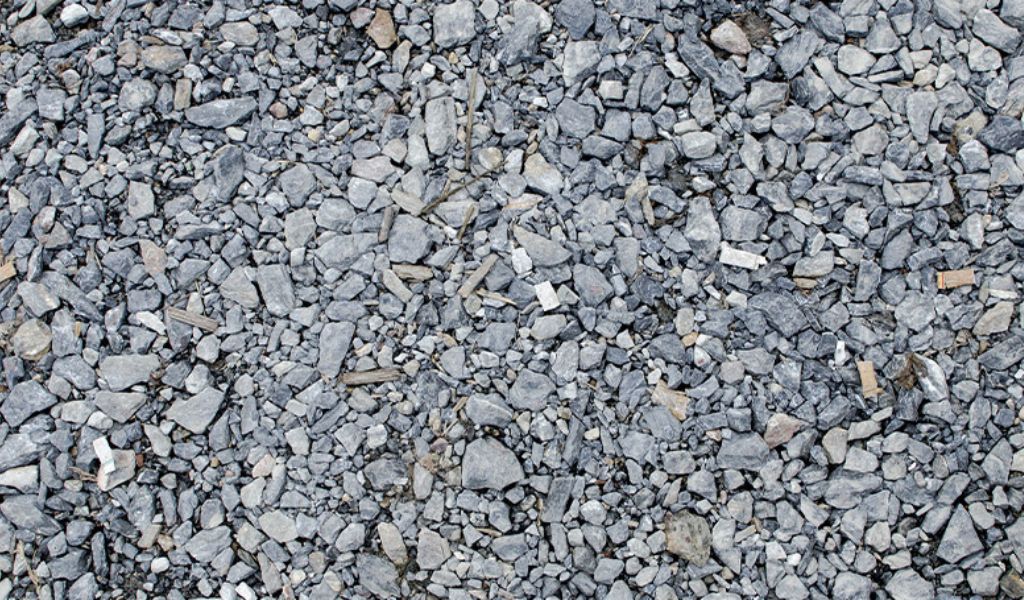
A gravel parking lot has the look of asphalt but not the price. Maintaining your lot will be easier compared to an asphalt or concrete lot, and installation of a gravel lot typically doesn’t take long either. Do make sure you’re using specific types of gravel for the longevity of your lot, including marble chips, pea gravel, or crushed stone.
Per square foot, you’d pay $1.25 to $2 for a gravel lot. Do keep in mind that if the weather gets very hot or very cold, a gravel parking lot might not be able to handle it. You also get less longevity than with a concrete or asphalt lot.
Pavers
Pavers, available in materials like concrete, natural stone, and recycled plastic, provide a customizable option for parking lot surfaces. The cost varies with material type, generally ranging from $10 to $30 per square foot. This pricing includes labor, base materials, and installation. Their advantage lies in durability and easy maintenance, with the ability to replace individual pavers as needed. Their design flexibility allows for unique patterns and color combinations, enhancing the lot’s visual appeal.
Brick
Brick pavers are a premium choice, offering a classic look. They are more expensive, with costs ranging between $15 to $40 per square foot, influenced by brick type and design complexity. Despite the higher upfront cost, brick’s durability makes it a long-lasting option. It’s suitable for high-traffic areas due to its load resistance and offers excellent drainage and environmental benefits, being made from natural materials. When choosing brick, consider its long-term advantages alongside the initial investment.
FAQs about How Much Does It Cost to Build a New Parking Lot?
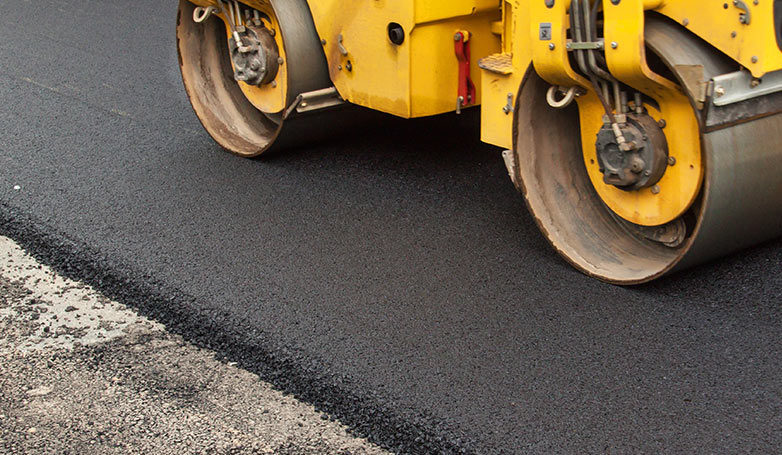
Here are a few common questions related to the expenses associated with parking lot construction.
How Much Does It Cost to Repave or Resurface a Parking Lot?
No matter the material used for your parking lot, the day will come when you need to repave or resurface the lot. When you resurface your parking lot, you first fix the lot damage and then add new asphalt on top of the preexisting layer.
This costs $3 to $5 a square foot, says HomeAdvisor. Although resurfacing is expensive, your parking lot can last decades longer than it would have if you skipped this job.
Resurfacing is different than repaving, which is when you replace the damaged paving with fresh areas of asphalt or concrete. It’s less expensive than resurfacing, as you may pay $0.90 to $2.50 a square foot for the job.
How much does it cost to stripe a parking lot?
The cost to stripe a parking lot typically falls in the range of $0.15 to $0.25 per square foot, with an average total cost ranging from $4,000 to $5,000 for a standard-sized lot. Keep in mind that specific factors such as lot size and layout complexity can influence the overall expense.
Conclusion
Building a new parking lot requires many considerations, such as the size, material, and whether you need drainage. Once you can answer those questions, you’ll have a clearer idea of how much your project will cost.

